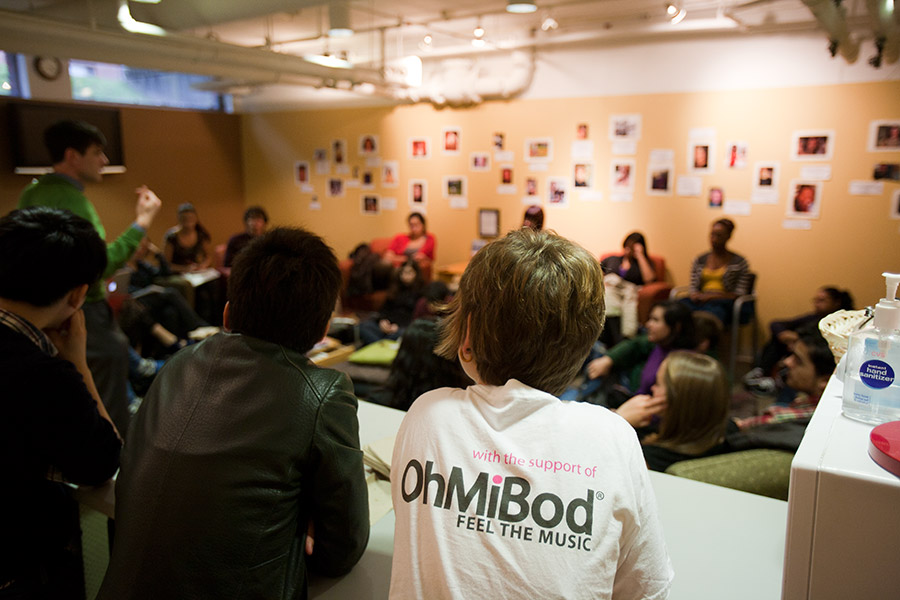Top name universities including Yale and Harvard are starting a trend by hosting “sex weeks”, promoting openness on everything sex.
Teens are doing it. They’re not even keeping it secret anymore–in dorms, classrooms, Olin, even in the Campus Center. And, now it’s time for The Sandspur too. Let’s do it– let’s educate ourselves.
Harvard just finished its annual Sex Week only a few days ago. Don’t believe me? Check their website, or search their Twitter feed. Sex Week is a collegiate week dedicated to all things intimate. Sure, you’re probably saying: “That sounds mildly provocative, lewd, and heathen”, but that hasn’t discouraged Yale from organizing similar events about getting it on. This is, in part, due to its unparalleled awareness and conscientiousness which have resulted from their annual “sextivities.” The events demonstrated have ranged from seminars advocating awareness of global and domestic sex trafficking to debates surrounding the values of sex, abstinence, and relationships in context to the age-old notion of l’amour. A college campus that opens its arms to a “Sex Week” demonstrates a hypersensitivity to the interests of its population–sexually active or otherwise.
It’s apparent from the Rollins Confessions page on Facebook and from our own Sexperts column that there is intrigue–even if controversial–in this area and its perspectives on romantic love. Staff members and our peers have expressed views that these are often “inappropriate.” As freshmen, we are exposed to discussions revolving around dating safety and are required to complete a sexual assault certificate and attend the infamous “Sex and Chocolate.” Why? Because these are pertinent aspects that carry heavy implications during the college experience and only increase thereafter. From there on, where do we leave these issues? To the media? No–Miley Cyrus cannot teach you what you need to know. If she has, well then, that’s very troubling.
Abrasive and subtle messages of sexuality are apparent in everyday society and have slowly morphed the modern generation’s concepts of sex, no doubt. But, is it for the better? In some ways, doesn’t the overt sexualization of young females also degrade the civil and social advances we’ve also made in recent years past? The necessity of sex conversation isn’t to promote sex. It’s to learn which is why we go to school.
Unlike the Love Your Body events, Sex Week aims to not only empower women primarily but also foster healthy, safe, and fulfilling relations among both genders–that are not necessarily sexual in nature. Co-President of Voices for Women, Niki Inclan, believes the week is “beneficial to healthy relationships and communication” that could function as the “sex ed we likely never had in high school.”
Rollins, rated No. 1 in the south by U.S. News and World Report, holds expectations to not only maintain its standards of excellence, but also to strengthen and grow from within. Brown University, Northeastern, Indiana University, Kentucky University, Washington University in St. Louis, Farlow, and U. Penn have taken Yale’s initiative and replicated it with their own twists. Dialogues range from sex and politics (how unheard of!), anatomy (somehow), literature (the blue curtain rippled–you know what that means) into economics, psychology, chemistry, and history. It’s impossible to hold an educated discussion on sex without being interdisciplinary and incorporating multiple lessons. I believe the term is “liberal arts,” interestingly.
Disclaimer: The intent of the week is not to be an advocate for promiscuity or to violate other’s beliefs. The point is to allow others to ask questions about sex which overlap with other fields, because societal taboos may make it difficult to conduct those conversations otherwise.
Why Rollins? Why not Rollins? We possess a mature, insightful student body, so why not let them learn about sex? Rollins has proven itself to be more than a learning foundation; it provides a myriad of social experiences respecting other cultures, sexual orientations, religions, and political parties. We seek to be innovative–so should our events. There is no distinction, because we the students are Rollins, and so there lies (provocatively and with a sultry wink) the irony.
Photo from Harvard Sex Week







Be First to Comment